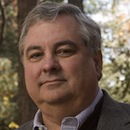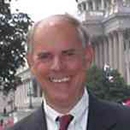Advisory Board and Editors Environmental Sciences

Jenny Renaut
Responsible of the Environmental Research and Technology Platform
since 2015, and Leader of the Integrative Biology Platform at Luxembourg Institute of Science and Technology, including proteomics, metabolomics and genomics laboratories. Specialized in Plant proteomics, Chairwoman of the COST action FA0603 'Plant Proteomics in Europe', general secretary of the International Plant Proteomics Organization

Leslie Ries
Leslie Ries is an ecologist who focuses on patterns at both medium and large scales. She has worked both in the fields of landscape ecology and biogeography with her focus mainly on butterflies. Over the last 10 years, she has shifted from a field approach to using large databases, mostly originating from citizen science monitoring networks.

Coen J. Ritsema
Professor of Soil Physics and Land Management at Wageningen University, the Netherlands. Recipient of Honorary Professorships at i) Deakin University, Australia, ii) the Institute of Soil and Water Conservation, Chinese Academy of Sciences, China, and iii) Moscow State University of Environmental Engineering, Russia.

Timothy D Scheibe
Laboratory Fellow at the Pacific Northwest National Laboratory (PNNL), and Lead Scientist at the Environmental Molecular Sciences Laboratory (EMSL), a scientific user facility located at PNNL. Research interests emphasize coupled hydrologic and biogeochemical processes as they control water quality, ecosystem health, and contaminant transport and fate. Collaborates with multidisciplinary teams to perform integrated computational and experimental research across a wide range of physical scales from molecules and cells to aquifers and watersheds. Was selected by the National Ground Water Association to serve as the 2010 Henry Darcy Distinguished Lecturer, in which role he presented 65 invited lectures across North America and Europe.

Richard Schuster
I am the Director of Spatial Planning and Innovation at the Nature Conservancy of Canada and an Adjunct Research Professor at Carleton University, studying the ecological impacts of human activities and develop novel techniques to prioritize conservation areas and strategies. I have a theoretical and applied background in quantitative ecology and statistics and spatial big data analysis. I develop novel analytical tools for researchers and other practitioners to explore and use in conservation planning and management.

Andrew A Shantz
I am a marine ecologist, utilizing principles from community and physiological ecology to understand the impacts of global change on marine ecosystems.

Jonathan O Sharp
Jonathan (Josh) Sharp is an Associate Professor of Environmental Engineering at Colorado School of Mines. Dr. Sharp’s research focuses on the ramifications of biological processes as they relate to water quality with an approach that integrates facets of microbiology, engineering, biogeochemistry and hydrology to enhance our understanding of the natural and built environment. Professor Sharp obtained his PhD from UC Berkeley in Civil and Environmental Engineering and conducted postdoctoral studies at EPFL, Switzerland before joining Mines.

Herman HenryH Shugart
W.W. Corcoran Professor of Natural History in the Department of Environmental Sciences and Biology, University of Virginia. Foreign member of the Russian Academy of Sciences, Fellow of the American Geophysical Union and Fellow of the American Association for the Advancement of Science.

Isabel Sousa Pinto
Professor at the University of Porto and researcher at Ciimar: Centre for Marine and Environmental Research. She has a PhD in seaweed ecology, ecophysiology and cultivation from the University of California Santa Barbara. Her main research is in biodiversity and ecology of benthic communities and the biology, cultivation and use of seaweeds and she is the Head of the Laboratory of Coastal Biodiversity. She is also member of the Steering/Executive Committees of several international and European programs as: EPBRS - European Platform for Biodiversity Research Strategy, MABEFF+ – European Institute for the study of Marine Biodiversity and Ecosystem Functioning, MARS - European Network of Marine Research Institutes and Stations, EMBOS - Development and implementation of a pan-European Marine Biodiversity Observatory System, and co-chair of the Working group on Marine Ecosystem Change from GEO BON – Biodiversity Observation Network and in the Portuguese delegation to the UN Convention for Biological Diversity

Valeria Spagnuolo
Valeria Spagnuolo is Associate Professor in Botany at the Department of Biology at the Federico II University of Naples. She obtained a Ph.D. in molecular systematics (plants) and the scientific qualification to Full Professor 05/A1 (Botany) during the ASN 2018.
Dr. Spagnuolo was involved in several research projects, with a focus on biomonitoring and phytoremediation, within her task/unit and in international teams (the most recent ones: EU Project FP7- ENV.2011.3.1.9-1 Mossclone (2012-15); LIFE11 ENV/IT/275 Ecoremed (2012-2017); PON 03PE_00107. Biopolis (2013-2017).
Dr. Spagnuolo's expertise includes genetic variation in natural populations of mosses along environmental gradients; biomonitoring of air quality by cryptogams and vascular plants; and phytoremediation of metal-polluted soil. In recent years, her long research experience has been centred on plant response to abiotic stresses and biomonitoring of indoor air pollution.
She is involved in editorial activities, as a reviewer for international journals (e.g. Environmental Pollution, Frontiers in Plant Science), as a guest editor in Atmosphere and Plant Journals, and as an editor of the latest Italian edition of Raven (Zanichelli).
Dr. Spagnuolo has published over 60 publications (Scopus ID 6602352988), with an h-index 20 and over 1200 citations. She also detects a patent as the inventor of a tool for biomonitoring of air quality (EP 3 076 171 A1).

Judy St. Leger
Past President, International Association of Aquatic Animal Medicine
Current and past Scientific review board member for Oiled Wildlife Care Network, Morris Animal Foundation, Prescott grant program, SeaWorld-Busch Gardens Conservation Fund, National Fish and Wildlife Foundation. Trustee and Lecturer, CL Davis and SW Thompson Foundation, President, Rising Tide Conservation

John J. Stegeman
Sr. Scientist and former Head of Biology and Watson Chair, Woods Hole Oceanographic Institution. Director, NSF/NIH Woods Hole Center for Oceans and Human Health. Editorial Boards of several journals, former Editor-in-Chief, Aquatic Toxicology. Honorary Doctorate from Goteborg University.

